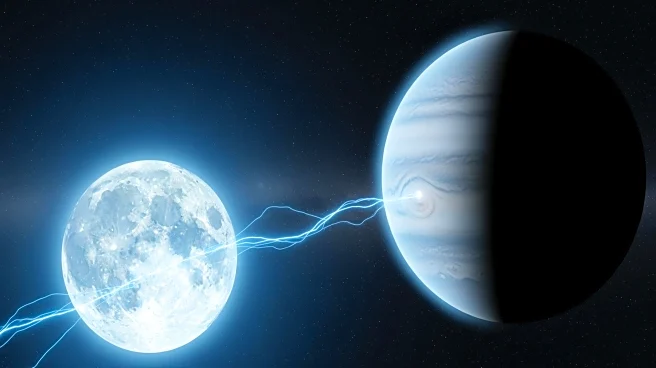Rapid Read • 8 min read
Ukrainian President Volodymyr Zelensky has announced a new draft law aimed at restoring the independence of two key anti-corruption bodies, the National Anti-Corruption Bureau (Nabu) and the Specialised Anti-Corruption Prosecutor's Office (Sap). This move comes in response to widespread protests across Ukraine, which erupted after a previous law placed these bodies under the control of the prosecutor general, an official appointed by the president. The protests, the largest since the start of the war, were fueled by concerns that the legislation would undermine the authority and effectiveness of these watchdogs. Zelensky justified the initial decision by citing Russian influence, following security operations targeting alleged Russian spies within the agency. However, the backlash from both domestic critics and Western allies has prompted Zelensky to propose a new bill to safeguard the independence of these institutions.
AD
The independence of anti-corruption bodies is crucial for Ukraine's democratic integrity and its aspirations for European Union membership. The European Commission has emphasized that the rule of law and the fight against corruption are essential criteria for EU membership. The protests and subsequent legislative changes highlight the tension between maintaining national security and upholding democratic principles. Zelensky's actions have drawn criticism for potentially backsliding on democratic reforms, which could impact Ukraine's international relations and its path towards European integration. The situation underscores the delicate balance Ukraine must navigate between internal governance and external pressures from Western allies.
The Ukrainian government is expected to work closely with the European Commission to address concerns regarding the independence of Nabu and Sap. The Commission has welcomed the decision to propose a new draft law, indicating ongoing collaboration to ensure that the independence of these bodies is preserved. As Ukraine continues to face external threats and internal challenges, the government's ability to maintain transparency and accountability will be closely monitored by both domestic and international stakeholders. The outcome of these legislative changes could significantly influence Ukraine's future political landscape and its relationship with the EU.
The protests and legislative changes in Ukraine reflect broader issues of governance and democratic resilience in the face of external pressures. The situation raises questions about the role of anti-corruption bodies in safeguarding democratic institutions and the potential risks of political influence over such entities. The developments may also prompt discussions on the effectiveness of international oversight and support in promoting democratic reforms in countries facing geopolitical challenges.
AD
More Stories You Might Enjoy












